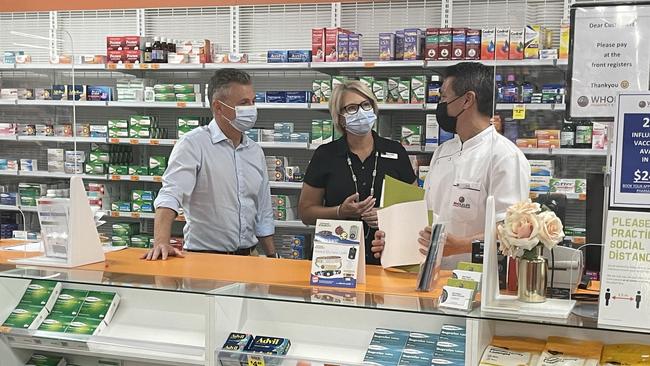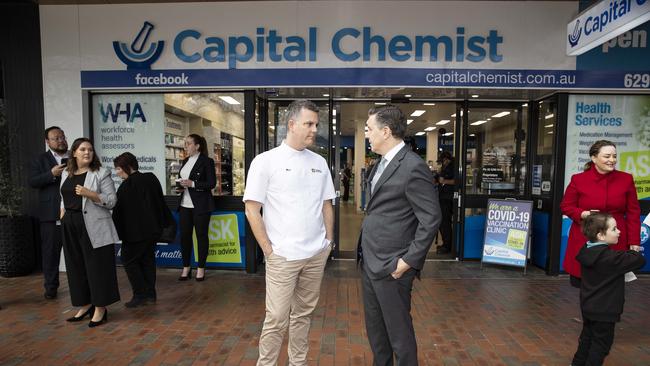Patients will pay less for critical medicines including ‘miracle’ cancer drug
Australians will have cheaper access to medicines for migraines, arthritis, bipolar, stomach ulcers and several cancers.
National
Don't miss out on the headlines from National. Followed categories will be added to My News.
Australians will have cheaper access to medicines for migraines, arthritis, bipolar, stomach ulcers and several cancers, following a review of prices expected to save $1 billion.
From next month, a wide range of medicines will be reduced by around $6 per script as a result of the federal government’s price disclosure policy, which reviews the cost of treatments on the Pharmaceutical Benefits Scheme (PBS) every six months.
The disclosure requirements ensure Australians are getting the cheapest possible access to lifesaving medicines, with the latest round of price reductions expected to save patients $130 million in out-of-pocket expenses.
Ensuring these medicines are provided at the lowest price will also save taxpayers about $930m in subsidies.
Starting October 1, up to half a million Australians with stomach ulcers will save $6.84 on esomeprazole, while 60,000 patients with schizophrenia or bipolar disorder will pay no more than $28.42 per quetiapine script.

More than 20,000 migraine sufferers and people with epilepsy can expect to pay $34.90 per script for topiramate, and about 15,000 patients suffering from severe psoriatic arthritis will save on leflunomide prescriptions.
Australian women using anastrozole to inhibit the progression of breast cancer will save up to $2.36 per script.
The government is also listing additional medicines on the PBS, including expanding access to cancer drug pembrolizumab, known as Keytruda, for up to 500 patients with squamous cell carcinoma of the head and neck.
Without a subsidy, one course of this treatment can cost a patient more than $135,000.
Keytruda has already helped thousands of Australians, including Wollongong nurse Mary Carroll, 62, who “never dreamt” she would reach her 60th birthday after finding she had metastasised cancer in one lung six years ago.
“I remember turning to my sister at the time and saying, ‘I’m going to die aren’t I?’,” Ms Carroll said.
“And my sister said, ‘yes you are,’ because we don’t beat around the bush in my family.”

Ms Carroll was fortunate enough to qualify for a clinical trial where she was given a combination of Keytruda and chemotherapy.
After nine weeks her cancer was completely gone.
“If Keytruda becomes a standard part of the cancer treatment repertoire it means more people have a chance to be in the position I am,” she said.
Health Minister Mark Butler said the changes would improve the lives of thousands of Australian patients and their families.
“The government is making a trip to the pharmacy cheaper for thousands of Australians,” he said.
Treatments being added to the PBS also include expanding avelumab, known as Bavencio, to stage three and four urothelial carcinoma patients.
Decitabine with cedazuridine, known as Inqovi, will be listed on the PBS for the first time to treat myelodysplastic syndromes and chronic myelomonocytic leukaemia, which affect blood cells and bone marrow.
The government will also list mecasermin, known as Increlex, for the first time to treat children with primary insulin-like growth factor one deficiency.





